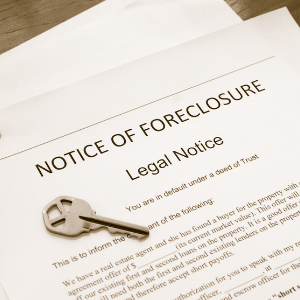
Facing a foreclosure auction can be a daunting experience, especially when it comes to understanding the timeline and legal intricacies involved. For homeowners in Cleveland, OH, it’s essential to understand the timeframe for vacating the property after a foreclosure sale concludes. This guide aims to clarify the eviction process following a foreclosure auction, empowering you with critical knowledge to navigate this challenging period effectively. By shedding light on applicable state and local laws, as well as your rights and responsibilities, we offer actionable insights to help you transition smoothly while safeguarding your interests during this stressful time.
By shedding light on applicable state and local laws, as well as your rights and responsibilities, we offer actionable insights to help you transition smoothly while safeguarding your interests during this stressful time. If you’re hoping to avoid the foreclosure process altogether, Cleveland House Buyers offers a quick, hassle-free solution — allowing you to sell your Cleveland house fast for cash before the auction ever takes place.
Key Highlights
- Foreclosure in Cleveland, OH, involves a complex series of legal steps, from the issuance of the default notice to the auction sale.
- Ohio sheriffs oversee foreclosure sales, ensuring auctions adhere to legal standards.
- Following a post-foreclosure auction, occupants typically have 30-45 days to vacate.
- Eviction processes following the auction include potential legal rights to delay or negotiate exit terms.
- Resources like housing counseling and legal aid help former homeowners transition smoothly.
Understanding the Foreclosure Process in Cleveland, OH
The foreclosure process in Cleveland, OH, is a complex procedure that involves several steps, which homeowners must understand thoroughly. In this region, the foreclosure process begins when a lender initiates legal action due to unpaid mortgage obligations. Ohio foreclosure laws dictate this journey through the common pleas court and can have significant implications for the homeowner. Understanding the nuances of this process helps residents prepare for the various stages, from notification to the foreclosure auction. Familiarity with the foreclosure timeline and how the local legal system operates is essential for those navigating potential foreclosure.
Key Steps of Home Foreclosure in Cleveland, OH

The foreclosure process in Cleveland, Ohio, typically begins when a homeowner fails to make mortgage payments. After several missed payments, the lender issues a Notice of Default, giving the homeowner a chance to catch up on missed payments and avoid further legal action. If the debt remains unpaid, the lender may file a foreclosure lawsuit in the Cuyahoga County Court of Common Pleas to recover the balance owed.
Once the court reviews the case and rules in favor of the lender, a judgment of foreclosure is entered. This judgment sets the stage for a sheriff’s sale or foreclosure auction, usually scheduled within 30 to 60 days. During this period, homeowners may still have the opportunity to reinstate the loan or pay off the balance to stop the foreclosure before the auction occurs.
On the day of the foreclosure auction, the property is sold to the highest bidder under the supervision of the court. After the sale, the proceeds are used to satisfy the mortgage debt. In some cases, Ohio’s redemption laws allow homeowners a brief window to reclaim their property by paying the full amount owed before the sale is finalized.
Understanding each step of the Cleveland foreclosure process empowers homeowners to act quickly, explore their legal rights, and potentially avoid losing their homes. With early action and the proper guidance, it’s possible to minimize financial damage and plan a smoother transition if foreclosure becomes unavoidable.
Understanding each stage — from notification to the foreclosure auction — helps residents prepare for what’s ahead. And for those who want to avoid foreclosure in Cleveland, Cleveland House Buyers offers a fast and fair alternative. The company specializes in buying houses for cash in nearby cities like Parma, Lakewood, Euclid, and Garfield Heights, helping homeowners close quickly and move on without the stress of court proceedings or bank delays.
The Role of the Ohio Sheriff in a Foreclosure Sale
In Cleveland and throughout Cuyahoga County, the Ohio sheriff’s office plays a central role in carrying out foreclosure sales. Once the court issues a judgment of foreclosure, the sheriff is responsible for executing the sale order, ensuring that the auction process follows all legal and procedural requirements.
The sheriff’s duties include advertising the foreclosure auction, managing the bidding process, and overseeing the transfer of property ownership to the winning bidder. This ensures transparency, fairness, and compliance with Ohio foreclosure laws.
Understanding the sheriff’s responsibilities helps Cleveland homeowners know what to expect during the foreclosure process. With this insight, they can prepare for upcoming steps, seek legal guidance if needed, and make more informed decisions about their next move. Can an Executor Sell Estate Property also becomes an important question in situations involving inherited or probate-related homes, making it even more essential for families to understand their rights and responsibilities during any legal or financial transition.
What to Expect During the Sheriff Sale in Cleveland, OH
A sheriff sale is the final stage of the foreclosure process in Cleveland, Ohio, where the property is sold to recover the unpaid mortgage debt. The Cuyahoga County Sheriff’s Office conducts these public auctions under the supervision of the court. Before the sale, the sheriff’s office advertises the property in local newspapers and online listings to ensure potential buyers are informed.
On the day of the auction, the foreclosure sale usually takes place at the Cuyahoga County courthouse or an approved location. Buyers, including investors and private individuals, can bid on the property. The highest bidder becomes the new owner, pending confirmation of the sale by the court.
After the auction, the sheriff’s office finalizes the transaction by transferring the deed to the winning bidder and ensuring that all legal steps are completed. If the property is occupied, the sheriff may later handle post-sale eviction procedures in accordance with Ohio’s legal guidelines.
For homeowners, understanding this process helps manage expectations and plan accordingly. Knowing when the auction occurs and what happens afterward can help ease uncertainty and facilitate better preparation during a challenging time.
What Happens After a Foreclosure Sale in Cleveland, OH
After a foreclosure sale in Cleveland, Ohio, many homeowners wonder what comes next and how much time they have before they must leave the property. The foreclosure process doesn’t end with the auction — several necessary steps follow that determine when and how you’ll need to move out.
Once the Cuyahoga County Sheriff’s Office completes the sale, the winning bidder (often an investor or the lender) gains the right to ownership. However, before they can take full possession, there are legal procedures to finalize the transfer of title and confirm the sale through the court. This process can take several weeks.
During this time, former homeowners may still have limited occupancy rights depending on Ohio’s foreclosure and eviction laws. The specific timeline for vacating the property varies, but understanding the steps involved helps reduce stress and allows you to prepare for the next phase. Whether you’re negotiating extra time, exploring relocation assistance, or seeking legal advice, being proactive can make this transition smoother and less overwhelming.
Timeline to Move Out After a Foreclosure Auction

The new owner typically obtains rights to the property once the court confirms the sale, and the evicted occupants are allowed 30 to 45 days to leave. After the foreclosure auction in Ohio, the previous owners have 30 days to leave the property.
This may change due to several reasons:
- Redemption periods, if they exist, can allow the homeowners to balance and reclaim the property.
- An active bankruptcy case can automatically suspend the eviction.
- Even more so, settling with the new owner can allow the evicted occupants more time to leave the property; this is more so if they are prepared to leave the property in good condition.
If you find yourself facing eviction after foreclosure, it is in your best interest to speak with a lawyer who specializes in real estate or foreclosure. They will outline your rights, discuss payment negotiations with the lender or buyer, and address any remaining debts. A homeowner may have the option to ‘cash for keys,’ where the new property owner pays for a smooth and timely exit.
Strategic planning enables the consideration of multifaceted details in a step-by-step approach. In this context, begin estimating the timing of your move, explore rental opportunities in Cleveland and its surrounding cities, and seek help from local rental agencies at least six months in advance. Knowing your legal time limits and acting before any legal eviction proceedings begin can result in a much smoother transition to your next place of residence.
The Eviction Process Following a Foreclosure Auction in Cleveland, OH
Knowing what transpires after a foreclosure auction is particularly important for homeowners in Cleveland, Ohio, and relates, in particular, to eviction. At an auction, the winning bidder, an investor, or an original lender can take possession of the property. Auctioning a property, however, poses particular challenges to the former owners, as they may potentially remain in the property for a specified timeframe, after which they must surrender possession completely.
There is a range of specific legal procedures during this post-sale phase that outline the processes an occupant of the property must follow to surrender the premises fully. Your knowledge of the concepts and methods will help make the transition smooth and planning more efficient, as opposed to being more complex and anxiety-filled. Being proactive allows homeowners to take control and mitigate the numerous emotional and practical hurdles that often follow foreclosure.
Legal Steps and Homeowner Rights After Foreclosure
In Cuyahoga County, after a foreclosure auction, a property owner must legally go through the eviction process to obtain full ownership of the property in Ohio. Legally, such an owner can just file a motion in the Common Pleas Court for a possession order for the property. This order, in essence, serves as a legal authorization for the sheriff to evict absconding occupants.
In the event the order is granted, the Sheriff of Cuyahoga is required to serve a three-day notice, which allows for a legal eviction of the property until the former occupants vacate the premises. If the deadline is not met, the occupants face forced eviction.
In both scenarios, homeowners in Ohio have fundamental rights that are not customizable or negotiable and that can either modify or prolong the eviction process. For example:
- An eviction order can be legally stayed; as such, a homeowner can easily prolong the time in which they have to leave the premises.
- An attorney can identify defenses or legal missteps that, in general, can prolong the duration of the eviction process.
- Homeowners can enter into cash-for-keys agreements, where the owner pays the occupant in return for prompt eviction from the property.
These legal alternatives may be beneficial for homeowners who want to maintain their dignity throughout the entire process. They may consider consulting with a foreclosure attorney or contacting the Legal Aid Society of Cleveland or similar local legal aid organizations, as their assistance can prove invaluable.
Being aware of your legal rights and responsibilities changes the entire dynamic of the situation. It is recommended that homeowners be well-informed of a foreclosure sale in advance to avoid any unpleasant surprises and to increase their chances of success.
Tips for Navigating the Transition After a Foreclosure
Undergoing a foreclosure transition can be overwhelming, regardless of the emotional and financial strain it can have; the residents of Cleveland have numerous resources and techniques to ease this process. Community assistance, legal resources, and dedicating a proper amount of time to a plan can help these former homeowners regain their balance and self-assurance.
If you have a foreclosure in Cleveland, Ohio, knowing the next steps is crucial in the overall process. The first step is to determine the type of housing options available, such as rental assistance, temporary accommodations, or government-sponsored relocation. Additionally, maintaining open lines of communication with the previous mortgage holder or the new assigned owner of the property can sometimes be the first step in negotiating an extension or a cash-for-keys agreement, which pays for access to the property during the period of ownership.
Undeniably, this period can be difficult, but it is the perfect time to focus on and rethink the way browsing through the financial, legal, and community resources available can put these former homeowners on a new beginning.
Resources Available to Former Homeowners in Cleveland, OH

A wide range of assistance is available to help Cleveland residents cope with challenges that arise after foreclosure, easing the transition and aiding in their recovery.
Counseling services for people experiencing homelessness provide services to the residents of Cleveland. They assist with budgeting and credit repair, and help clients find affordable rentals. CHN services help in developing living plans and can assist in obtaining long-term housing.
Rental assistance is sometimes available through government-funded housing programs, such as those approved by HUD, as well as relocation assistance and financial education services to help residents regain control over their financial situation.
A former homeowner may discover that old legal issues related to a foreclosure can resurface. It is wise to consult with a foreclosure attorney to determine the extent of your rights and obligations in connection with the eviction, including the timelines for redeeming the property after foreclosure, and any other commitments that may remain after the foreclosure.
Organizations established to provide legal aid in Cleveland offer free or reduced legal services to help clients regain control over their situation, as well as guide them through the eviction and negotiation processes.
Community-based organizations within Cleveland play a crucial role in the recovery process following foreclosure.
- Through workshops, the Cleveland Public Library teaches financial literacy tied to credit management and stabilization, which facilitates economic recovery.
- Support groups organized by Neighborhood Family Practice and other organizations provide people experiencing foreclosure with practical assistance and emotional support.
- Often, local nonprofits conduct seminars aimed at helping communities regain financial control and develop new, sustainable targets.
Understanding the foreclosure and eviction timeline in Cleveland, OH, can empower homeowners to make informed decisions during this challenging process. Each foreclosure case is unique, with various legal nuances influencing the timeframe for eviction after the auction. Engaging with a knowledgeable real estate attorney or a foreclosure expert can provide valuable guidance tailored to your specific situation. By proactively managing the post-foreclosure period, affected homeowners can better navigate potential transitional housing opportunities and effectively plan their next steps, ensuring a smoother transition during an undoubtedly stressful period.
Frequently Asked Questions
What is the process of foreclosure in Cleveland, OH?
The foreclosure process in Cleveland, OH, begins when a borrower defaults on their mortgage loans. Lenders send a notice of default to the homeowner, and if unpaid, proceed by filing a foreclosure lawsuit in the Common Pleas Court. After the court process concludes, the property is put up for auction.
What happens after a foreclosure auction in Cleveland?
Once a foreclosure auction is complete, the winning bidder gains rights to the property. Former homeowners typically have 30 to 45 days to vacate. However, this timeline might vary based on legal rights and negotiations with the new owner.
How does the eviction process work after foreclosure in Cleveland, OH?
The eviction process post-foreclosure involves the new property owner filing a motion for a writ of possession in the common pleas court, which, once granted, allows the sheriff to enforce the eviction.
What resources are available to help homeowners in Cleveland transition after foreclosure?
Homeowners in Cleveland can access resources such as housing counseling services, legal aid, and community organizations offering financial literacy workshops and rental assistance programs to aid in their transition after foreclosure.
Can former homeowners delay eviction after a foreclosure auction in Cleveland?
Yes, former homeowners can potentially delay eviction through legal defenses, negotiations, or redemption periods, which may provide additional time before they are required to vacate the property.
Cleveland House Buyers is dedicated to helping homeowners overcome challenging situations, such as foreclosure, by offering fast, fair cash offers and flexible closing options — making it easy to sell your house quickly and move forward with peace of mind. Contact us at (440) 577-6552 today to learn more about how we can assist you.
Helpful Cleveland, OH Blog Articles
- Optimal Months For Selling Your Home In Cleveland, Ohio
- A Cleveland Home Amidst A Pending Lawsuit
- Can A HOA Foreclose On Your Cleveland Home?
- Resolving Title Challenges In Cleveland Real Estate Closings
- How to Get a House Appraised for Free in Cleveland, Ohio
- Selling Your Home By Owner In Cleveland, Ohio
- Attorney Fees For Real Estate Closings In Cleveland, Ohio
- Sale of a Lien-encumbered Property In Cleveland, Ohio
- How To Sell Your Cleveland Home Below Market Value
- Living In A House During Probate In Cleveland
- MLS Listing Options In Cleveland For Home Sellers
- Selling A House In Poor Condition In Cleveland, Ohio
- Guide To Court-ordered Property Sales In Cleveland
- Guide To Selling Your Cleveland Home With A Reverse Mortgage
- Selling A House With Asbestos In Cleveland, OH
- Expert Tips For Selling Your Cleveland Home And Relocating Out Of State
- How Long to Move Out After Foreclosure Auction in Cleveland, OH
- Can You Sell a House As Is Without Inspection in Cleveland, OH?
- Typical Timeline to Sell a Fire-Damaged House in Cleveland, OH

